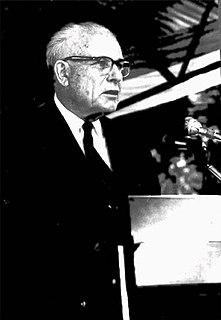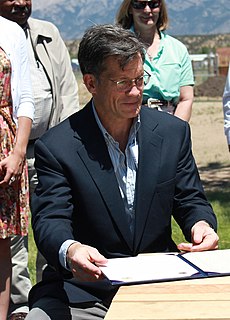A Quote by Ludwig von Mises
What can prevent the coming of totalitarian socialism is only a thorough change in ideologies. What we need is an open positive endorsement of that system to which we owe all the wealth that distinguished our age from the conditions of ages gone by.
Related Quotes
Puzzlement and doubt are, however, already crimes in the totalitarian state. The mind that is open for questions is open for dissent. In the totalitarian regime the doubting, inquisitive, and imaginative mind has to be suppressed. The totalitarian slave is only allowed to memorize, to salivate when the bell rings.
Confusion conditions activity, which conditions consciousness, which conditions embodied personality, which conditions sensory experiences, which conditions impact, which conditions mood, which conditions craving, which conditions clinging, which conditions becoming, which conditions birth, which conditions aging and death.
Communism is Utopia, that is nowhere. It is the avatar of all our religious eschatologies: the coming of the Messiah, the second coming of Christ, nirvana. It is not a historical prospect, but a current mythology. Socialism, by contrast, is a realizable historical system which may one day be instituted in the world.
No citizen of this nation is worthy of the name unless he bears unswerving loyalty to the system under which he lives, the system that gives him more benefits than any other system yet devised by man. Loyalty leaves room to change the system when need be, but only under the ground rules by which we Americans live.
Every system tries to get people to conform to support that system. That goes for communism, socialism, free enterprise, or any other civilization. If they don't demand loyalty, they can't keep their civilization together. So what they do is they teach things that would support an established system. We do not advocate an established system. TVP talks of an emergent system into state of change. So that we always prepare people for the next changes coming ahead. So that people will not cling to the past.
Our institutions and conditions rest upon deep-seated ideas. To change those conditions and at the same time leave the underlying ideas and values intact means only a superficial transformation, one that cannot be permanent or bring real betterment. It is a change of form only, not of substance, as so tragically proven by Russia.




































